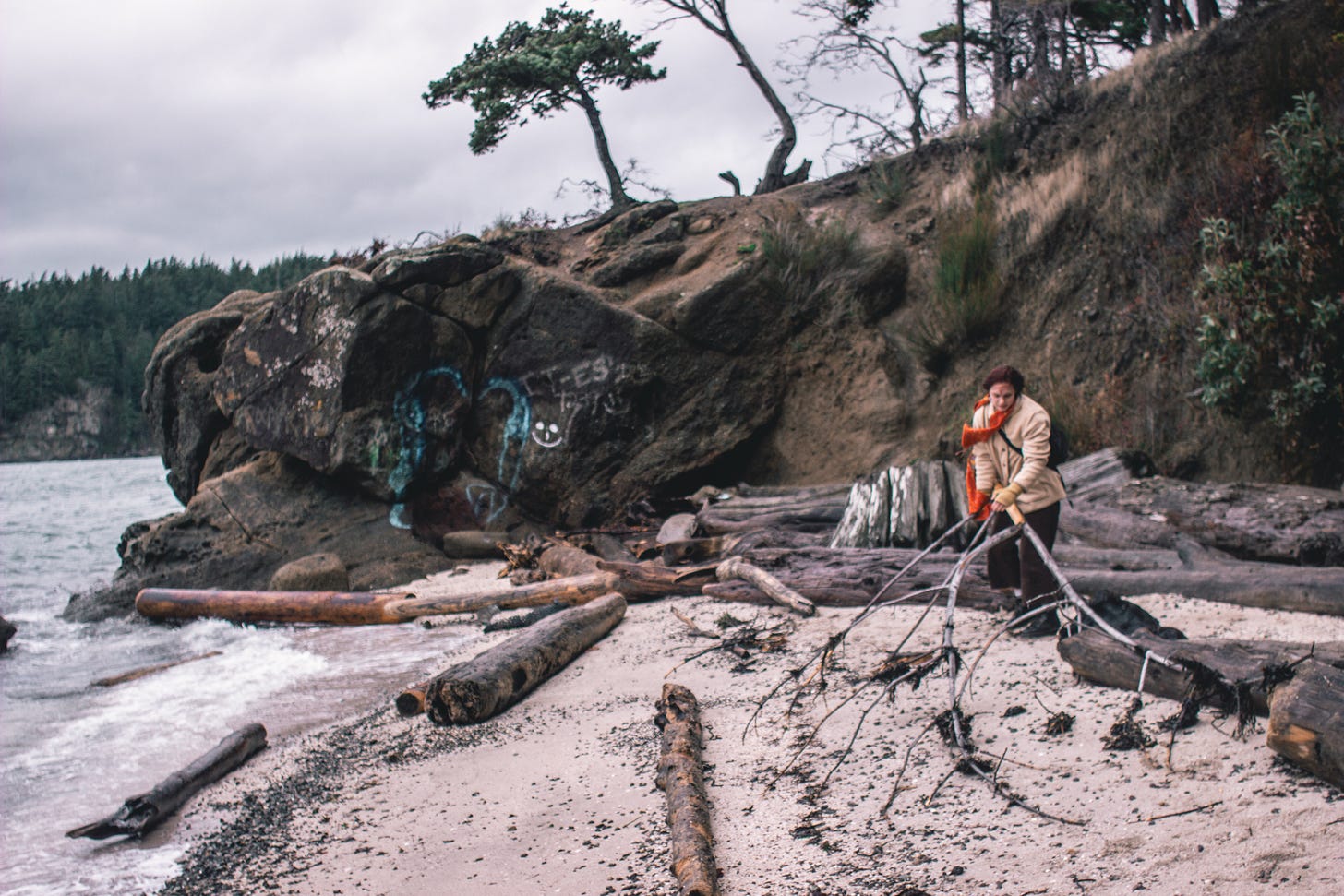This Isn’t Working Anymore
our relationship to caring
I’ve done the early morning house chores. Re-kindled the fire, hauled in more wood, made coffee. A.’s friend sent them a meme a few days ago about lesbians taking over farms. I joke to A. that I’m a queer trad wife, only because I like to take care of things, but I think that I am not a queer trad wife at all, I am just queer, and queer people take really good care of things; for example, historically, their friends dying from AIDS. Or/and we step in as family. We nurse and feast and wrestle, kindly, in a field.
I have been thinking a lot about what I take care of. I am often caring for children, animals, land—but none of those things are ever mine. I care for others’ things; I am the working class. In many cases, I won’t see the ending. And I mean, you could argue that there is never an ending, time is cyclical, all that. But the things I have cared for aren’t mine to see anymore. I do the work and I leave.
The other day I made a list of what I take care of that is mine: my bed, the wood stove, relationships, the cast iron. Those are all basic necessities. Sleep, heat, love, nourishment. While writing the list, I began to think that this was a bad thing, that I needed something that was mine.
Art is something I care for. And, in a way, you do the work and you leave. At some point, the work has to be finished. It has to live on without you. Art is good, we know. Animals are good, that is true too. Children are good. They grow and change and become something entirely new within their same selves. Like a plant, like substance, like art. Warmth and food is good. Love is good.
Maybe this isn’t working anymore, our systems. (They don’t. I see how they fail children at school.) The systems haven’t worked since Europeans colonized and created them. (So, never.) I am not saying anything new, but I am saying that I feel how dire the situation is and how I wish our relationship to caring would change.
Marginalized care is radical. It is resourceful, healing, therefore magical. Palestinians are losing everything, including their livelihoods, because of a government that imposes the word “mine” in the form of killing and hatred. Indigenous people lost and continue to lose their land because of the word “mine”. Maybe what we own is not the problem, but the act of disingenuous care is. It’s like King Solomon and the two women fighting over the baby, how the one woman said yes to the baby being split in half so they could each have some—I am not a Christian anymore, but that’s still my favorite story from the bible. (Edit: I just looked up the story, 1 Kings 3:16–28, and I missed that the other mother’s baby was smothered. I’m not sure what this says, other than there is deep desire and grief. How do we provide healing from grief as a community? I have a lot to say about present day grief, but the woman’s misfired grief holds a lot of truth for my point in context of Israel and Palestine and Jewish people’s past.) Governments who don’t care how many times something is slashed or pulled apart do not actually care about the child, the animal, the land. They are greedy. The baby isn’t anyone’s child if it is dead; the earth isn’t anyone’s home if it continues to be uninhabitable. It could be another generation before perching, before the children are alive again.
…
A. just left to do farm chores. I can see them walking down the driveway, headed toward the sheep and ducks. This morning they are letting me care for something, this newsletter, because they care for me. Yet, I am not theirs… unless we believed in traditional roles… which we don’t, despite my joking. They still care. I see their tiny red jacket in the distance now, saying good morning to the sheep.
May we care for things that aren’t ours and see it as something magical. <3



I really value this piece. Thank you!
I look forward to this every week even more now